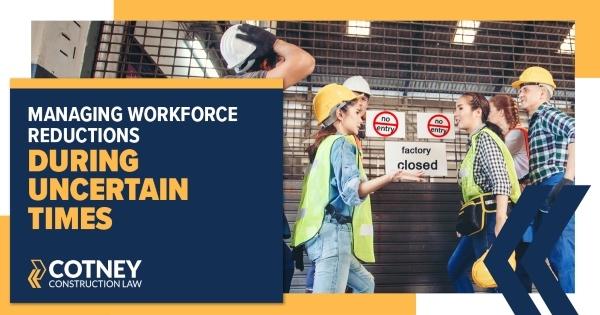Tariffs, ICE and new regulations: Legal changes from June 2025
July 15, 2025 at 12:00 p.m.By Emma Peterson.
Get a quick, contractor-friendly recap of the biggest legal developments from Trent Cotney’s June construction law brief.
Keeping up with all the latest legal issues and updates to the roofing industry has been a bit of a challenge lately with tariff changes, immigration regulations and more. Luckily for us, Trent Cotney of Adams and Reese has created an easy way to keep up with the big shifts – the Cotney Briefs! These emailed newsletters provide great insight into construction law in a manageable and understandable way. Here’s a peek into the six topics Trent’s June brief covered.
1 – The DOL paused the 2024 Independent-Contractor Rule
At the beginning of May 2025, the U.S. Department of Labor (DOL) ordered its investigators to stop using the Biden-era “totality-of-the-circumstances” when identifying independent contractors. While this rule is being examined, the previous “economic realities” test will be used again.
What this means for contractors: You should review and update your independent contractor agreements to reflect the older test and make sure you have clear paperwork outlining the role of independent contractors in your business.
2 – 90-Day tariff truce
An executive order from May 12, 2025, kicked off a 90-day tariff truce between the U.S. and China. This cut the reciprocal tariff on certain imports down to 10% instead of 34% or 145% until August 12, 2025. Existing tariffs still remain, meaning that, in general, roofing products from China still have 40-55% in duties.
What this means for contractors: Make sure your bids include a tariff adjustment clause and prepare to purchase prior to the possible jump in August.
3 – On May 19, 2025, Florida Governor DeSantis signed HB 715 into law
The law reshapes post-storm roofing contracts in Florida. There were three main changes:
- Roof-to-wall evaluation and reinforcement allowed on the same job
- Homeowners can cancel a roofing contract within 10 days or before the start date (only if the contract was signed within 180 days of a state of emergency).
- Contracts for reroofs or repairs must now include a bold, at least 14-point font notice telling homeowners to confirm their insurance before signing
What this means for contractors: Make sure to update your contracts and paperwork to adhere to these changes. Also, bolster your team to make sure they know how to stay compliant under the new law.
4 - H.R. 1 passed the House
In the third week of May, the U.S. House of Representatives passed H.R. 1. This economic package combines changes to taxes, infrastructure funding and construction incentives. It’s important to note that the final version of this bill can still be changed in the Senate.
What this means for contractors: Possible economic and tax changes such as a 23% permanent deduction for pass-throughs and a 100% write-off for immediate expensing for construction equipment/vehicles. These changes make this an opportunity to consider adjusting your tax strategies and project opportunities (specifically rural Opportunity Zone projects).
5 – Case update: Trinity Energy Services, L.L.C. v. Southeast Directional Drilling
This case surrounds a Texas pipeline prime contractor, Trinity Energy, and their claim that arbitrators “manifestly disregarded” Texas contract law by refusing to read a no-damage-for-delay clause as a bar to stand-by costs and exceeded their powers under FAA § 10(a)(4) through a $1.66 million arbitration award. The Texas Fifth Circuit upheld the award, Trinity appealed and it now looks like it may go to review in the Supreme Court (as the other courts are split on their decisions).
What this means for contractors: If you operate in Texas, Louisiana or Mississippi, you should make sure your contracts have built in protection for arbitration. That means outlining explicitly that arbitrators must issue a detailed, “reasoned” decision, that you have an internal arbitration appeal option, and any legal objections must be a part of the hearing record.
6 – ICE on the jobsite
With changes in immigration policy, here are a few compliance-oriented, rights-focused measures to keep your workers prepared for Immigration and Customs Enforcement (ICE)’s growing presence. Please note, this is general information not legal advice.
- Tighten your company paper trail by auditing forms like I-9 for any errors and purge files beyond the three-year/one-year retention rule.
- Talk to your team about enrolling in n E-Verify or DHS’s IMAGE program which can help defuse roadside check.
- Ensure your vehicles have no cause to be pulled over (check frequently for anything that might not be road-legal, such as a broken light).
- For company vehicles, consider adding magnetic door signs that display company name, DOT number and phone. This is because unmarked vehicles draw more scrutiny.
- Provide a laminated rights card to put in the glovebox that gives drivers a scripted response to any immigration-related questioning and a counsel's phone number for help.
What this means for contractors: Keep yourself and your team up to date on policies, changes and proactive measures related to immigration policy changes. For more information about compliance-oriented, rights-focused measures, read Trent’s full article on his website.
Learn more about Adams & Reese LLP in their Coffee Shop Directory or visit www.adamsandreese.com.
The information contained in this article is for general educational information only. This information does not constitute legal advice, is not intended to constitute legal advice, nor should it be relied upon as legal advice for your specific factual pattern or situation.
























Comments
Leave a Reply
Have an account? Login to leave a comment!
Sign In